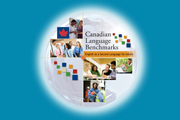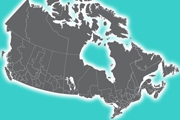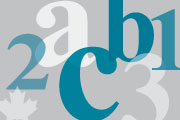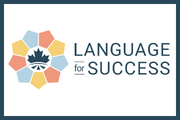For Immigration or Citizenship
For Citizenship
The CLBPT and BTC-NCLC are not accepted for Citizenship purposes. Here are useful links:
- Find out if you have the language proof for citizenship – Guide to help you gather the appropriate documentation.
- What documents can I use to prove that I meet the citizenship language requirement? – Information on the needed documents for your application.
- Language test equivalency charts – Find out what your approved test results mean in CLB levels.
- Living in Canada tool – Learn about what it’s like to live in Canada and which resources are available to you to help you settle here.
For any other information regarding Citizenship, please contact IRCC directly or your Settlement Officer.
To better understand the what CLB 4 means, please read the CLB Level 4 Listening and Speaking documents:
For Immigration
The CLBPT and BTC-NCLC are not accepted for immigration purposes. Here is some useful information in your immigration process:
Immigrate to Canada – How you can immigrate to Canada, how to protect yourself from fraud and what to expect after you arrive in Canada.
How the CLB’s can be useful
You may be thinking of coming to Canada, or you may have already immigrated. If so, you may be wondering how Canadian Language Benchmarks (CLB) can help you as you settle into new routines and choose your future pathways.
Canadian Language Benchmarks can be a very useful tool as you settle, train, and work in Canada. The Canadian Language Benchmarks are used across Canada and can be used to:
- help new immigrants with language training (may ESL programs in Canada use the Canadian Language Benchmarks);
- understand skill levels for training and education (a better understanding of your CLB level can help you in your education or employment path).
Provincial Information
Most provinces in Canada have a website to help newcomers settle into their new community. You will find information about the province, the economy, employment opportunities, and learning English. For more information in a province, click on the link below:
Training and Education in Canada
There are many levels of education and training in Canada. If you are coming to Canada to go to school, there is research that you need to do first. If you are settled in a province, there are opportunities that you will want to research. If you are currently working in Canada, you may be offered training through your company!
In order to register for university and college courses, you will need to have your language assessed. Each school has different requirements.
If you have degrees, diplomas and certificates from other countries, you will need to have them translated and compared to Canadian standards. Each university has different requirements for the way to do this.
Where can I get an Educational Credential Assessment (ECA)?
A useful starting point to get information about the Foreign Credential Recognition process is the Canadian Information Centre for International Credentials website. This site has information and links to information about:
- Foreign Credential Recognition
- Studying and working in Canada
- Education in Canada
The Association of Universities and Colleges of Canada represents public and private colleges and universities. You can find information or links:
- Information and links to universities
- Scholarships
- News
Working in Canada
Are you planning to move to Canada to work? Are you here and looking for work? You will need to do your homework.
To learn more about the legal requirements for working in Canada go to www.jobbank.gc.ca.
This site will give you lots of information about working in Canada.
The Government of Canada’s website has organized work in a variety of ways. The information in this section will help you:
-
find information about occupations you are interested in learning more about
-
find information about employment outlooks for different occupations
-
learn how jobs are classified in Canada
-
begin your job search
-
learn something about certification
Occupations and Canadian Language Benchmarks
How are the Benchmarks related to work? Many occupations have been assigned CLB levels. For example, work has been done that is quite useful to newcomers. Aircraft Maintenance Engineers should demonstrate language proficiency at the following levels in order to be successful in employment:
| Listening | Speaking | Reading | Writing |
| 8 | 8 | 9 | 7 |
What does that look like?
An Aircraft Maintenance Engineer may have to speak for her team in a department meeting. She will have to respond appropriately in an e-mail or note concerning a complaint or issue concerning work. She will have to listen carefully during her performance review to understand what type of feedback she is receiving. She will have to read with understanding and critical thought a variety of documents including: charts, graphs, blueprints etc.
Canada has 3 National Standards for work and job skills, and communication requirements.
1. Canadian Language Benchmarks: These are the Benchmarks you have been learning about at this site. These standards or benchmarks link language competencies to tasks we do at work. If you need a quick review click on Language Levels.
2. Essential Skills: These are the skills we use for work, learning and life. They provide the foundation for learning all other skills and make it possible for people to grow in their jobs and adapt to workplace change.
There are nine essential skills including:
- Reading
- Document Use
- Writing
- Numeracy
- Oral Communication
- Thinking
- Digital technology
- Working with Others
- Continuous Learning
Over 200 occupations have been profiled. At the Essential Skills site, you can search for a job title or category and you will find the job requirements related to each of the 9 essential skills. More profiles of other occupations are being developed and will be available in the coming months.
3. National Occupation Classification: These are also referred to as NOCs (said like KNOCKS). Visit https://www.canada.ca/en/immigration-refugees-citizenship/services/immigrate-canada/express-entry/eligibility/find-national-occupation-code.html to learn more on NOCs or search for a specific code.
The job specific information includes:
- sample title *
- main duties or responsibilities
- employment requirements
- additional Information
*For example, there are 97 related job titles to the category sewing machine operator. When you are looking for work it is good to know the different names a job may be called.
Other useful links related to NOCs:
Finding Work in Canada
If you are planning to work in Canada, or if you have already arrived, there is a huge amount of information on-line to help you make decisions.
Labour Market Information (LMI) allows you to search for labour market information on a national, a provincial and a local level. You can find
- job descriptions
- job and skills requirements
- information about wages and salaries
- employments prospects
Job Postings: There are local and national sites where you can read postings and also post your résumé. You can also check the on-line version of a local newspaper for job ads. Every province has Employment Centres specifically to help newcomers find work.
There is A Guide to Work and Relocation in Canada that can provide you with more information on eligibility and requirements when planning for relocation.
Credentials
Regulated Professions and Certification
Many occupations in Canada are regulated. Some jobs in Canada require that you have a special license before you can begin work. These are called regulated occupations. Most regulated occupations require that you have specialized education and experience before receiving your license. Physicians and electricians are examples of workers who need to be licensed in order to do their job.
An excellent site for exploring Occupations and Certification is www.cicic.ca, the Canadian Information Centre for International Credentials. The site is worth exploring especially for internationally trained professionals. The site has information on:
- Occupational profiles for selected trades and professions
Detailed information about procedures to follow and Contacts to make in preparation for practicing specific trades and professions in Canada - Recognition of Professional Qualifications
Fact sheet with answers to the most frequently asked questions about the recognition of qualifications for the purpose of employment in Canada · - Foreign Credential Recognition
What you need to know about the assessment and recognition of foreign credentials, and which services to contact - Immigrating to Canada
Links to the reference sites on immigration to Canada and to the sites designed by the provinces for potential immigrants.










